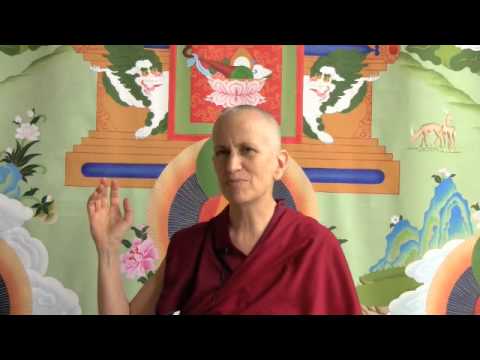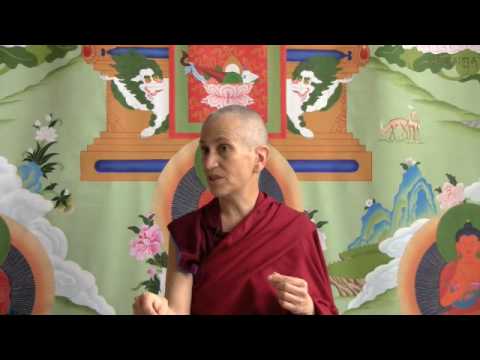Causal dependence and karma
Part of a series of Bodhisattva's Breakfast Corner talks given during the Green Tara Winter Retreat from December 2009 to March 2010.
- In general, anything that is an effect is also a cause
- An action we do now ripens in the future
Green Tara 055: A question about causal dependence (download)
[Responding to written question from the audience]
Someone wrote in a question about the first kind of dependence, causal dependence, and they said, “Is it correct to say that something we experience as a result today is going to become a cause in the future? Therefore the way we handle each experience will affect the ripening in the future?”
In general, anything that is an effect is also a cause. It’s not a cause of its cause: it’s a cause of another effect. That’s because anything that’s produced is impermanent. It arose depending on conditioning factors and so it by its own nature is impermanent, and will serve as a conditioning factor for something else. That’s in general. You plant a seed, a tree grows. The tree produces more seeds that then produce more trees and, you know, our chicken and egg.
This question is also talking about karma. We do an action now and then it ripens in the future. How we respond to the way it ripens, to the situation that we’re in, will create more karma and this will bring about more future results. That’s why the thought training process and the thought training teachings are so valuable. Why? Because karma ripens we experience something we don’t like. For example, somebody says something or does something and it pushes our buttons. Then if we just react in the same old way and we all have our patterns, it’s kind of like push-button, and we act that out. That just creates more karma for similar kinds of situations and for similar kinds of behavior in the future. Whereas if we practice the thought training, that unpleasant situation could happen, but then we stop and we realize we have a choice and we work with our mind. We let go of the upset and the anger, or the attachment, the jealousy—we let go of that. By our mind responding in a different way, then our speech and our actions will follow suit. This is how we stop the continuing of that karma. Instead we’re creating a new result. We’re creating a new cause for a different kind of result. Are you getting it?
Audience: For the cause for taking refuge, when you consider that if you continue to live your life on automatic, you fear to suffer in the future. Is the automatic the place that you’re speaking about here?
Venerable Thubten Chodron: Right, you just do the same old thing. Yes. You live on automatic.
Venerable Thubten Chodron
Venerable Chodron emphasizes the practical application of Buddha’s teachings in our daily lives and is especially skilled at explaining them in ways easily understood and practiced by Westerners. She is well known for her warm, humorous, and lucid teachings. She was ordained as a Buddhist nun in 1977 by Kyabje Ling Rinpoche in Dharamsala, India, and in 1986 she received bhikshuni (full) ordination in Taiwan. Read her full bio.


